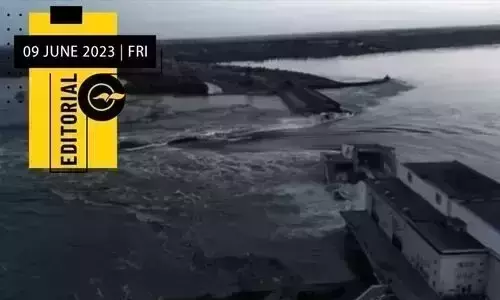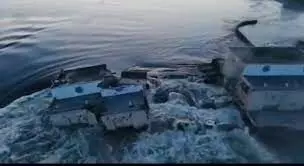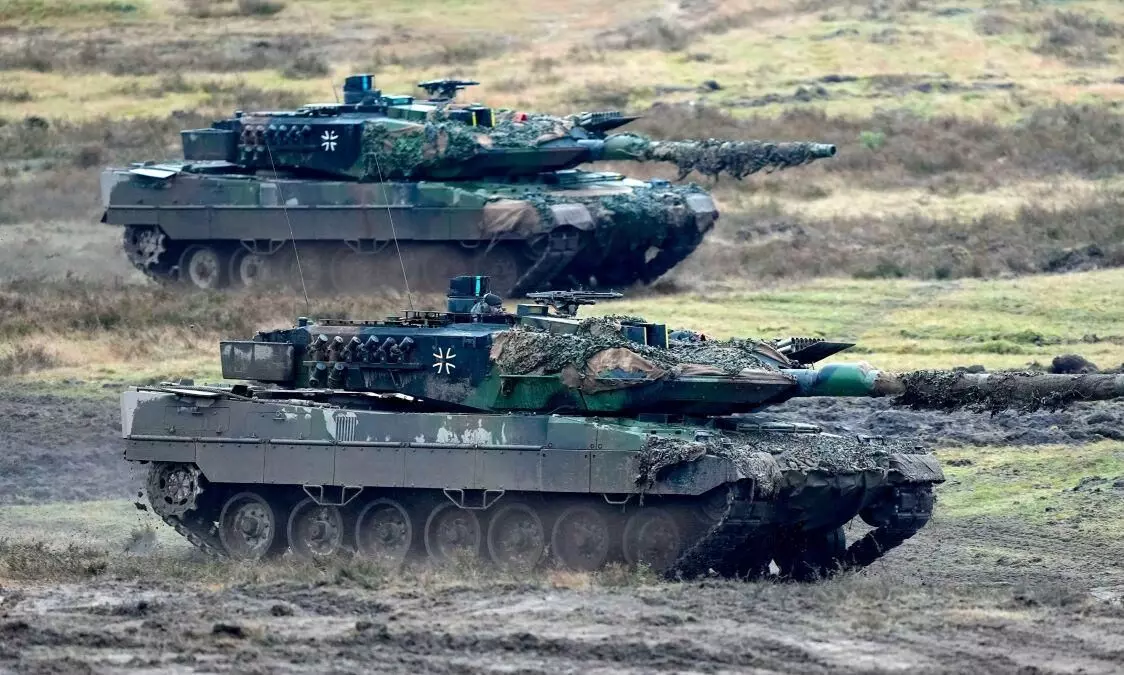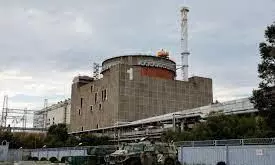
Heartbreaking war tragedies
text_fieldsThe tragedies and destruction that take place on every battlefield serve as the foundation for the saying that war is a failing of mankind. After 471 days of the Russia-Ukraine war, which can be considered an invasion, the world is currently watching attacks that have the potential to demolish all good hopes. The Nova Kakhovka dam in Russian-controlled territory in southern Ukraine was breached in an explosion on Tuesday. Ukraine blames Russia for this heinous atrocity while Russia blames Ukraine for doing it. Russian President Vladimir Putin described the dam collapse as a 'barbaric act' by Ukraine. Ukrainian President Volodymyr Zelensky has accused the Russian forces of destroying the dam and shooting at Ukrainian rescuers trying to reach flooded areas. Apart from guns, bombs and missiles, propaganda and media agenda are also used as weapons of war, so it is impossible to easily identify who committed the violence.
Chatham House, an international monitoring group based in London, responded that it is impossible to say who is behind the crime as both sides may suffer the same damage. Whoever committed the crime, the poor are the ones who must pay the price. The infamous war tactic of the destruction of dams has been in use since the 80-year war between the Spanish army and Dutch rebels that began in 1568. British forces destroyed three dams in Germany during World War II. The US armed forces joined in the Korean War in 1950 as a rescue mission to aid South Korea and destroyed hydroelectric power plants in North Korean provinces. As the international community began to raise its voice against the damage caused by such atrocities, two more laws of war were added to the Geneva Conventions prohibiting acts that seriously harm man and the environment including the destruction of dams and nuclear power plants. The United States, which claims the exclusive right to bring about world peace, has not signed this provision. In 2017, as part of a military effort to drive out IS terrorists, they bombed and destroyed the Tabqa Dam in Syria, killing thousands of innocent people. Russia, which had agreed to refrain from destructive warfare, withdrew from it in 2019. Dams have been attacked at least five times during the Russia-Ukraine war since 2022. However, the potential consequences of the new violence are incalculable. Villages and cities along the banks of the Dnipro will be submerged, water supplies including to Crimea will be disrupted, Europe's largest nuclear power plant Zaporizhzhia may be damaged, and if the engine oil stored in the dam leaks and contaminates the water, it will become similar to Kalindi.
People from both sides continue to be displaced. One can only imagine how effective the rehabilitation will be when the war has already taken its toll. Even if it is possible to calculate the loss of cities and property, the loss of life cannot be easily ascertained. It is now impossible to find the landmines planted by both armies in the area surrounding the destroyed dam. The International Red Cross had already given a warning of the damage it could cause. The warlords on both sides are neither weary nor fed up even when people are standing in the middle of the sea of misery, neck-deep in water, but with no fresh water to drink. The government's arms supplier, Almaz-Antey, has been directed by Russian Defence Minister Sergei Shoigu to produce and deliver missiles immediately. Ukraine has deployed more than half a million troops with American support. NATO allies have been supporting them and providing them with arms. Countries that have no direct involvement in the war, on the other hand, sit idle in the cloak of pseudo-neutrality. It is very unfortunate that there is no nation or any credible mechanism on the face of the earth to cry out to at least stop the war.


























